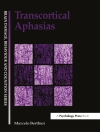‘The most comprehensive, one-stop source for the latest in applied developmental science.’
—Don Floyd, President and CEO, National 4-H Council
The Encyclopedia of Applied Developmental Science is an important and timely contribution to this burgeoning field. This four-volume set is the authoritative source that encompasses the entire range of concepts and topics involved in the study of applied developmental science. Its contents and levels have broad appeal for those interested in how the application of knowledge about human development can be used to enhance the lives of individuals, families, and communities.
The breadth of activity in applied developmental science makes adequate representation of its concepts and topics a daunting challenge. To this end, the encyclopedia seeks to answer the following questions:
- How may information about this field be integrated in a manner accessible, meaningful, and useful to the next generation of the leaders of our nation and world?
- How may we best convey the knowledge necessary for them to understand the nature of their development and the way that they may contribute positively to their own lives, to their families and communities, and to the designed and natural environments of which they will be stewards?
The Encyclopedia of Applied Developmental Science provides the most effective way to address these questions. It includes entries written in an authoritative but not overly technical manner by the broad range of scholars and practitioners involved in applied developmental science. In addition to an alphabetical table of contents, there is a readers′ guide that organizes the entries into 30 content categories to help the reader locate similarly themed entries with ease.
The encyclopedia is ideal for libraries serving those with interests in psychology, human development/human ecology, education, sociology, family and consumer sciences, and nursing, as well as social work and other human services disciplines. The entries are written to be accessible to not only professionals, but also to policy makers and other potential consumers of applied developmental science scholarship. This includes young people and their parents, teachers, and counselors.
Topics Covered
- Adolescent Development
- ADS Training and Education
- Adult Development
- Biographies of Applied Developmental Scientists
- Child Development
- Civic Engagement
- Culture and Diversity
- Development Promoting Interventions
- Developmental Assessment
- Developmental Disorders
- Developmental Processes
- Developmental Risks
- Ecology of Human Development
- Emotional and Social Development
- Ethics
- Families
- Foundations
- Health
- Historical Influences
- Infant Development
- Organizations
- Parenting
- Personality Development
- Religiosity and Spirituality
- Research Methodology
- Schools
- Social Issues
- Theory
- Universities
- Youth Programs
Advisory Board
Peter Benson, President, Search Institute
Joan Bergstrom, Wheelock College
Nancy A. Busch-Rossnagel, Fordham University
Roger A. Dixon, University of Alberta
Felton ‘Tony’ Earls, Harvard University
Robert C. Granger, William T. Grant Foundation
Daniel P. Keating, University of Toronto
Kim Choo Khoo, National University of Singapore
Kaveh Khoshnood, Yale University
Bonnie Leadbeater, University of Victoria
Rick Little, President & CEO, The Imagine Nations Group
Gary B. Melton, Clemson University
Jari-Erik Nurmi, University of Jyväskylä, Finland
Ellen Pinderhughes, Vanderbilt University
Avi Sagi-Schwartz, University of Haifa, Israel
T.S. Saraswathi, University of Baroda, India
Rainer K. Silbereisen, University of Jena, Germany
Merrill Singer, Chief of Research, Hispanic Health Council, Inc.
Margaret Beale Spencer, University of Pennsylvania
Linda Thompson, University of Maryland
Richard A. Weinberg, University of Minnesota
Hirokazu Yoshikawa, New York University
Luis H. Zayas, Washington University, St. Louis
Edward Zigler, Yale University
Giới thiệu về tác giả
Richard M. Lerner is the Bergstrom Chair in Applied Developmental Science and the Director of the Applied Developmental Science Institute in the Eliot-Pearson Department of Child Development at Tufts University. A developmental psychologist, Lerner received a Ph.D. in 1971 from the City University of New York. He has been a fellow at the Center for Advanced Study in the Behavioral Sciences and is a fellow of the American Association for the Advancement of Science, American Psychological Association, and American Psychological Society. Prior to joining Tufts University, he held administrative posts at Michigan State University, Pennsylvania State University, and Boston College, where he was the Anita L. Brennan Professor of Education and the Director of the Center for Child, Family, and Community Partnerships. In 1994-95, he held the Tyner Eminent Scholar Chair in the Human Sciences at Florida State University. He is author or editor of 55 books and more than 360 scholarly articles and chapters. He edited Volume 1 (Theoretical Models of Human Development) for the fifth edition of the Handbook of Child Psychology. He is the founding editor of the Journal of Research on Adolescence and Applied Developmental Science. He is known for his theory of, and research about, relations between life-span human development and contextual or ecological change. Lerner has done foundational studies of adolescents’ relations with their peer, family, school, and community contexts and is a leader in the study of public policies and community-based programs aimed at the promotion of positive youth development. With Sage, he authored America’s Youth in Crisis: Challenges and Options for Programs and Policies (1995), co-edited the four-volume Handbook of Applied Developmental Science, and is co-editing the two-volume Encyclopedia of Applied Developmental Science.












